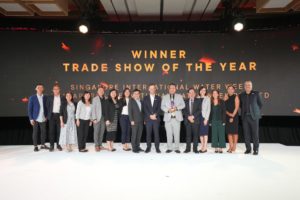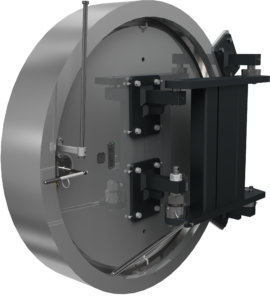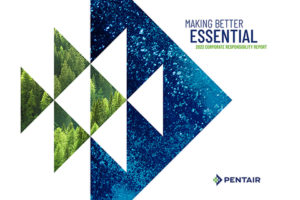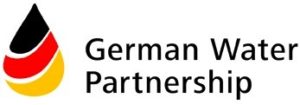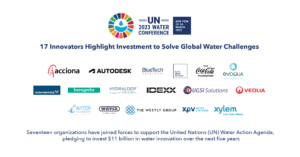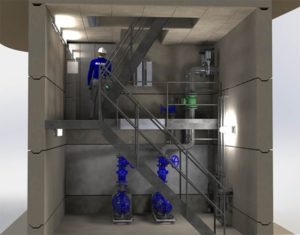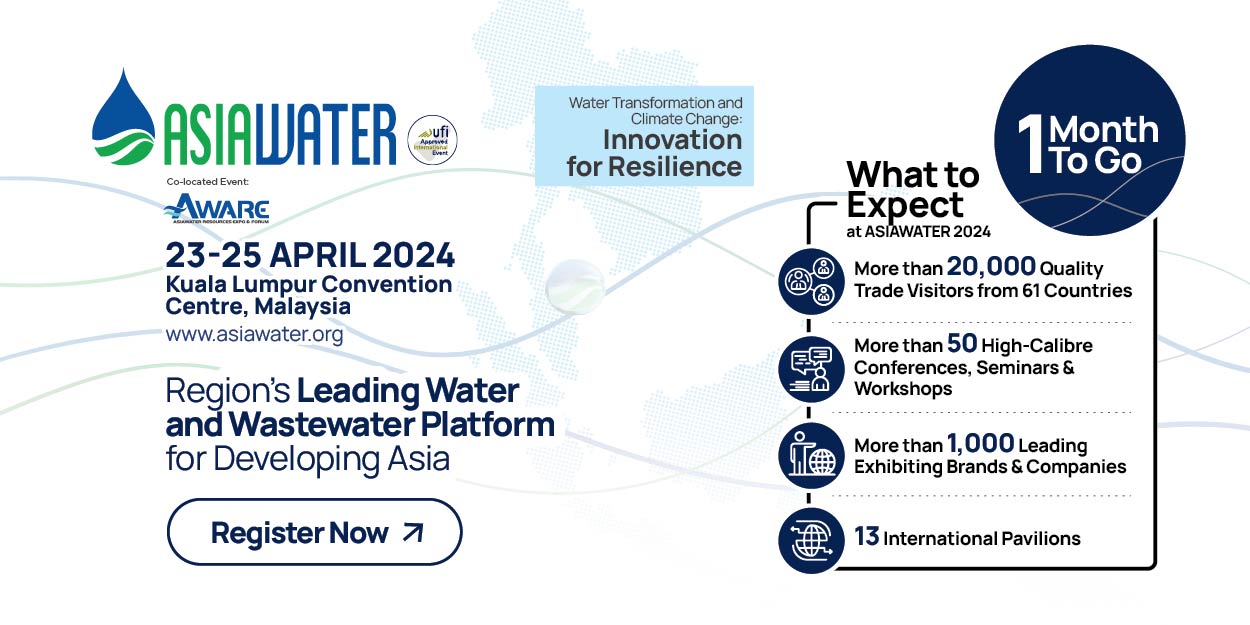Innovation and Sustainability – Keys to Competitive Dutch Water Sector
The world recognizes that the Netherlands has fought a long and successful battle against water. In fact, the Dutch have been building dikes to reclaim land and prevent floods and erosion for more than 200 years.
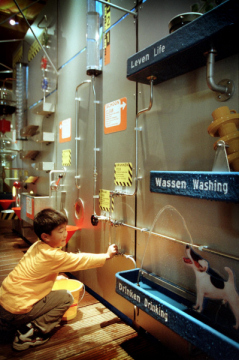 Picture: Clean drinking water for future generations
Picture: Clean drinking water for future generations
This has resulted in a wealth of expertise and experience in managing the flow, distribution and protection of its water resources; effectively putting the Netherlands at the forefront of cutting-edge water management and treatment technologies. On a wider scale, the limited access to clean water coupled with increasing industrialisation and urbanisation adding pressure to the global water supply are some of the challenges faced by populations today.
Climate change is an area for concern, threatening the security, economy, livelihood quality and ecology of our planet. Rising sea levels and overflowing rivers pose a constant threat to millions.
Exploring the effects of climate change, the Singapore International Water Week 2010 (SIWW) taking place from June 28 to July 2, 2010 in Singapore, will focus on the theme of Sustainable Cities: Clean and Affordable Water. Over the last two years, the Dutch have been strong supporters of this annual SIWW. In 2009, Dutch Professor Gatze Lettinga was awarded the prestigious Lee Kuan Yew Water Prize at the Singapore International Water Week 2009 in Singapore, for his environmentally sustainable solution using oxygen-free anaerobic technology to treat used water.
Partnering Research and Innovation
The country’s success in building and maintaining innovative water technologies can be attributed to its successful partnerships between the Dutch government, public and private organisations.
“Developing partnerships for success is ingrained in the Dutch culture, and collaboration between the best of both worlds ensures only the best and most innovative solutions for the world’s water problems,” says Ms Linnie Mackenzie, Area Director of the Netherlands Foreign Investment Agency (NFIA), a division of the Ministry of Economic Affairs, based in Singapore. The NFIA facilitates foreign direct investments into the country, providing practical assistance and consultations from a strategic perspective to local companies planning to establish, expand or diversify their business in the European market, the Middle East and Africa.
Among its key focus areas water, logistics, life sciences, research and development and sustainable energy.
“Whether it is water management or the preservation of life’s resources, the Dutch are always at the forefront of innovation, and this stems from our innate willingness to cooperate and collectively seek feasible solutions,” Ms Mackenzie says.
Management of Waste Water
A successful example is Wetsus, Centre of Excellence for Sustainable Water Technology. Opened in 2004 in the Friesland Province’s capital of Leeuwarden, the centre creates a unique environment for its members and participants to strategically cooperate in the development of profitable and sustainable state of the art water treatment technologies. The inspiring and multidisciplinary collaboration between over 80 companies and 13 research institutes results in countless innovations that contribute significantly to the solution of the global water problems.
Wetsus has made significant progress in a field of research previously unheard of, “black water”. The black water initiative by Wetsus is currently already being tested on a small scale. The centre is a participant in the DeSaH (Decentralized Sanitation and Reuse) demonstration project in the Lemmerweg-Oost neighbourhood of Sneek. It uses the concept of “black” and “grey water” for the collection and management of waste water.
This revolutionary method has been installed in 32 rental accommodations in Sneek. “Black water” from the toilet is kept separately from the remaining waster water, “grey water”. The “black water” is collected via a vacuum toilet, thus reducing the volume of water as minimal flushing is required. It is then purified in a specially designed installation. The residues of the purification process can be treated and reused. Currently, research is being carried out in Wetsus to find the optimal treatment concept for concentrated black water. With simple water treatment, the “grey water” can be reused for irrigation or cleaning purposes. The emphasis of the project is on the integration of various techniques to produce clean water as defined in the European Water Framework Directive.
Black Water and Grey Water
 Picture: Linnie Mackenzie
Picture: Linnie Mackenzie
On a smaller scale, geWoonboot has been developed by a Dutch housing consultant company, deltaWonen. It is a carbon-neutral houseboat that incorporates the “black water” concept, making it entirely self-sufficient. The water used for flushing the toilet comes not from the potable supply but from rainwater collected onboard. Wastewater is channelled to an onboard septic tank for initial treatment, and then transferred by a sump pump to the floating reed beds alongside the houseboat. “Black water” passes through the septic tank whilst the “grey water” passes through a degreaser.
At the bottom of the beds, the treated water is collected by means of a drainage system then pumped back to a storage tank in the houseboat to supply the toilet cistern, washing machine and reverse osmosis system which, with UV treatment, produces drinking water. The reverse osmosis system, with additional carbon and fiber filters, delivers two kinds of water: drinking water and a waste stream containing dirt filtered out of the source water. The waste stream is added back to the separation tanks and runs through the entire purification process once more.
The one-of-a-kind houseboat makes uses of environmentally friendly materials. Most of the plumbing network in the houseboat is made up of PVC pressure pipes, and the rainwater tanks of polyethylene. Other facets of the geWoonboot include a heating system that relies on energy present in the water on which the vessel floats. No matter how cold the external water is, water in the underfloor heating system can be as high as 48ºC (120ºF). It also produces its own electricity using solar panels, which provide the energy needed to power the lights and run the water pump. Excess power is stored in a collection of large batteries.
“The geWoonboot is a stellar example of the development of a sustainable and innovative product. In the foreseeable future, this fully integrated Dutch system will become the construction standard for all sustainable houseboats,” enthuses Ms Mackenzie.
International Cooperation: The Netherlands Water Partnership
The Dutch government is strongly committed to an international water management effort. There are some 200 Dutch companies in the water sector working on projects all over the world. The Netherlands Water Partnership (NWP) is one of the many avenues available where the Dutch extend their expertise around the world.
The NWP is a comprehensive network consisting of members from private companies, government, academic institutes and non-governmental organisations (NGOs) that unites Dutch water expertise. The partnership acts as a centre of information on water expertise, policy developments and market opportunities.
In March 2010, the NWP opened the Netherlands Water House (NWH) in partnership with PUB, Singapore’s national water agency. The NWH was established with the support of Dutch water companies in Singapore: Applus RTD, Optiqua Technologies, Delta Marine Consultants, Norit, New Business Development Associates Asia, Boskalis International, GMF-Gouda and Deltares.
Located at The WaterHub in Singapore, the NWH seeks to enhance collaborations undertaken by businesses and research institutions in the fields of science, technology and research within Singapore’s water sector. This is in line with the Singapore government’s commitment to develop the local water sector into a hotbed of water technologies over the next five years.
The NWH hopes to address global water problems by combining Dutch expertise and experience at all levels to provide innovative solutions to meet the global demand for more efficient, reliable and safe water management. The NWH will serve as a contact point and centre of information for the ASEAN region, with the aim of fostering regional partnerships and developing innovative strategies for water-related activities to enhance capacity building.
Private Sector Cooperation: NethWater
The Dutch government also encourages cooperation between private Dutch water companies. “The Netherlands is home to the world’s ten best engineering firms in the water field and we are constantly looking into new technologies that would help solve the country’s and the world’s water problems,“ says Ms Mackenzie.
NethWater is a consortium of four Dutch water technology companies combining the skills needed to engineer, supply technology for and operate water treatment plants. The four partners who are specialists in their respective fields are Evides Industriewater, Norit Membrane Technology, Royal Haskoning and Witteveen + Bos.
What is most unique about this consortium is that it integrates knowledge of engineering, construction and operation of water treatment plants so as to provide guaranteed quality and quantity of water-services. NethWater offers fully outsourced solutions to its industrial customers by means of Design, Build, Finance and Operate (DBFO) Concept. These integrated operational schemes for industrial water users include solutions along the whole value chain of water: process water, waste water treatment and re-use of effluent.
The worldwide water market demand for integrated solutions such as DBFO is growing rapidly. Industrial companies and municipalities have come to appreciate the involvement of specialist companies that can develop complete water treatment schemes such as DBFO. The total turnover on the international water market is estimated at €425 billion of which €292 billion come from drinking water supply and waste water treatment. In the coming years, the biggest investments in drinking water supply and waste water treatment are expected in Asia and the Middle-East.
The provinces located north of China (Ningxia, Shaanxi, Shanxi, Hebei, Liaoning and Inner Mongolia) will see the construction of a large number of coal-based chemical plants in the next few years. The area is known for the frequent droughts and the limited availability of water and re-using water is of utmost importance to the region.
In order to learn more about the local situation and to be able to test the technology at different locations, the NethWater partners have decided to design and operate a mobile demonstration plant. NethWater began construction of the first demon plant in the province of Shaanxi in February 2010 and completion of the project is expected in the second quarter of the year. This demo plant, which will produce demineralised water using wastewater effluent as feed source, will be deployed at a number of chemical companies in the dry north of China. Should the project prove successful, the demo plant will be upgraded to its full scale and provide full processing capabilities for the provinces.
The Dutch Approach: For Everyone’s Benefit
The Dutch take great pride in taking a collaborative approach to finding sustainable solutions for the world’s water problems. The Dutch government, private sector and research institutes are hard at work developing cutting-edge technologies, strategies and policies that meet the country’s as well as the world’s complex water challenges.
Combining Dutch expertise with that of key players in the industry, in the Netherlands as well as around the world can help us to find the best possible solutions to international water issues. “The Singapore International Water Week 2010 is one of the best avenues for Dutch expertise to shine through. It provides a conducive environment for the exchange of knowledge between like-minded professionals, key industry players and the world’s governments”, adds Ms Mackenzie.

